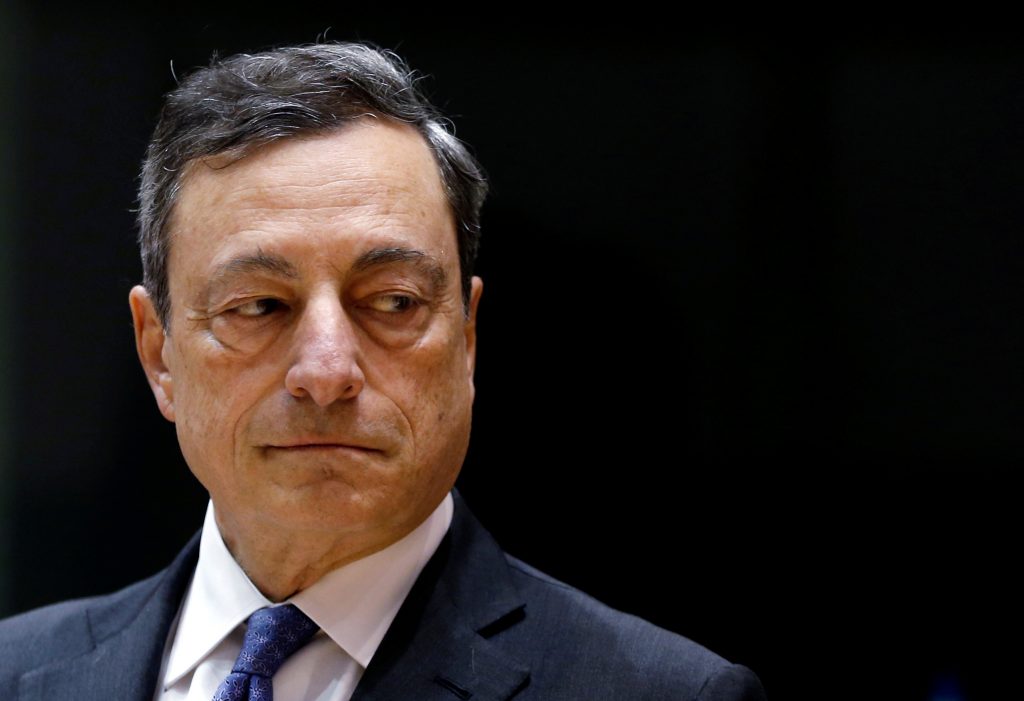Donald Trump may make European Central Bank President Mario Draghi great again. European bonds are tracking the rise in U.S. bond yields sparked by the U.S. president-elect’s spending plans. This helpfully expands the number of bonds Draghi can buy. Longer-term, U.S. protectionism could inflict deeper harm on the euro zone that would push rate-setters back into the limelight.
Investors are pushing up U.S. bond yields because they expect Trump’s plans to cut taxes and spend more on investment will boost U.S. government borrowing, economic growth, and probably inflation. European bond yields are rising in sympathy, not least because higher inflation could leak across the Atlantic. For example, German 10-year government bond yields have risen 20 basis points from their Nov. 9 lows, to 0.3 percent.
A moderate dose of inflation would be good news for the euro zone. There’s also a technical windfall for Draghi, who is buying 60 billion euros of government bonds a month. The ECB is unable to buy debt yielding less than its deposit rate, which is minus 40 basis points. This risks creating a shortfall of German debt but the latest rise in yields gives the ECB two extra months buying leeway, according to Frederik Ducrozet, an analyst at Pictet.
Unfortunately Trump doesn’t just want to spend more. He has also talked of erecting protectionist barriers. This risks hurting global growth and would mean less demand for European goods, of which a quarter go to U.S. customers. Ideally, politicians would act, for example by increasing funds for investment and making fiscal rules more flexible. Countries like Germany, that have capacity to borrow, could spend more. But all this would take time. Meanwhile, pressure on the ECB to act would grow.
The ECB still has room to act. It could give banks very long-dated cheap funds, possibly even at sub-zero rates, as long as they lend. Or it could buy more bonds, even if that means buying less German paper and more debt from countries like Italy. This would be unpopular in Germany. But if America wants to be great, other countries will have to act to ensure they aren’t losers.
Request a free trial of Breakingviews here.


